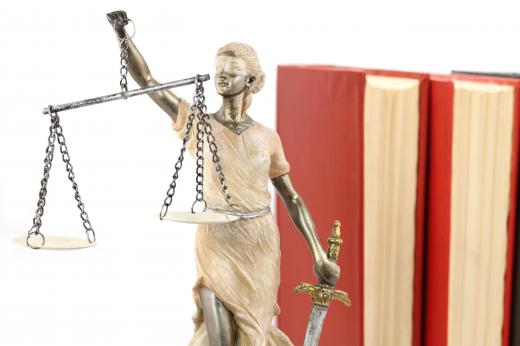Juvenile probation is a form of juvenile sentencing which allows juvenile offenders to remain in their communities, rather than incarcerating them or placing them in new homes. There are a number of reasons why this type of sentence may be made available to a juvenile offender. The court determines whether or not a juvenile is eligible for probation, and what the terms of the probation should be.
Probation in general is an important part of the justice system. Sometimes regarded as a test, it allows people to serve out all or part of their sentences outside of prison. From the point of view of the prison system, probation cuts down on expenses, and allows prisons to focus on incarcerating violent and otherwise dangerous offenders. Probation can also help people reintegrate into society.

In the case of juvenile probation, this method of serving a sentence is often preferred because incarceration is deemed especially harmful to juveniles. There is also a concern that the risk of recidivism can be increased, as a juvenile may pick up behaviors while in detention and apply these once she or he is released. Probation is one among a family of tools which are used to cut down on juvenile delinquency.

One of the key terms of juvenile probation is that the juvenile must report to a probation officer on a regular basis. She or he must also usually remain in school, which can include trade or technical school, or work if a diploma has already been earned. The probation officer must inspect and approve the workplace before a juvenile on probation can start work, and the officer may also work with the juvenile's family members, teachers, and other members of the community.

Activities are typically restricted with juvenile probation. The subject is usually prohibited from associating with former criminal partners, and is warned that any violation of the law may be harshly punished while on probation. The goal is usually rehabilitation of the offender, in the belief that juveniles have an opportunity to turn their lives around with intervention, and probation can offer an opportunity to do so.

Probation is not available to all juveniles. People who have committed certain crimes may not be allowed to seek probation, and repeat offenders are more likely to be incarcerated. For first time offenders and people with relatively mild offenses, however, juvenile probation is an option which is often strongly considered by the court in lieu of incarceration.
